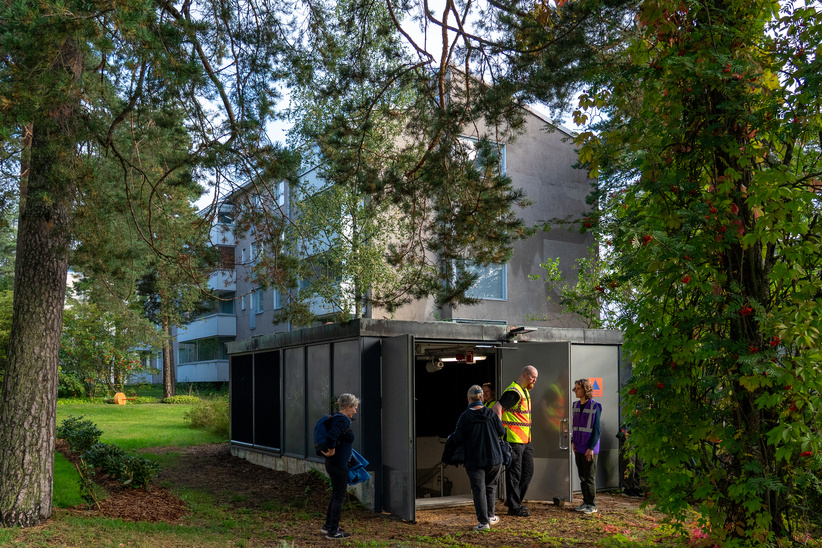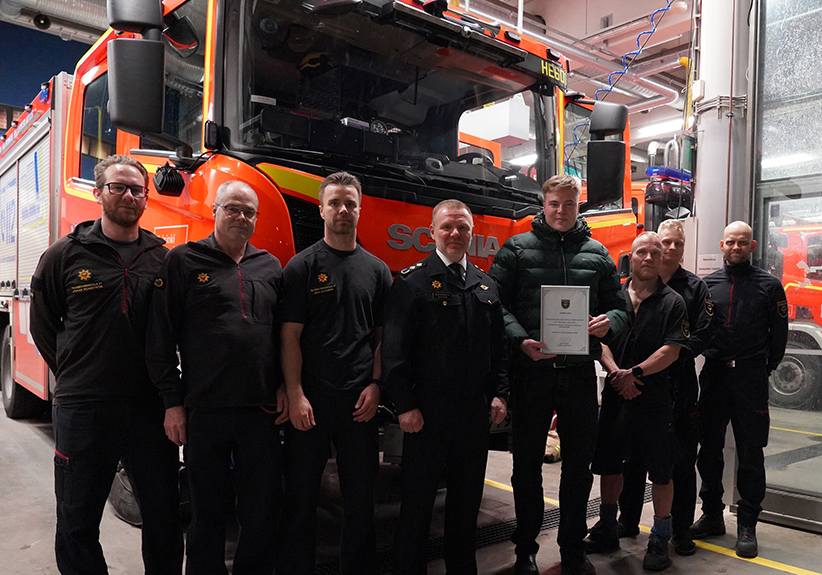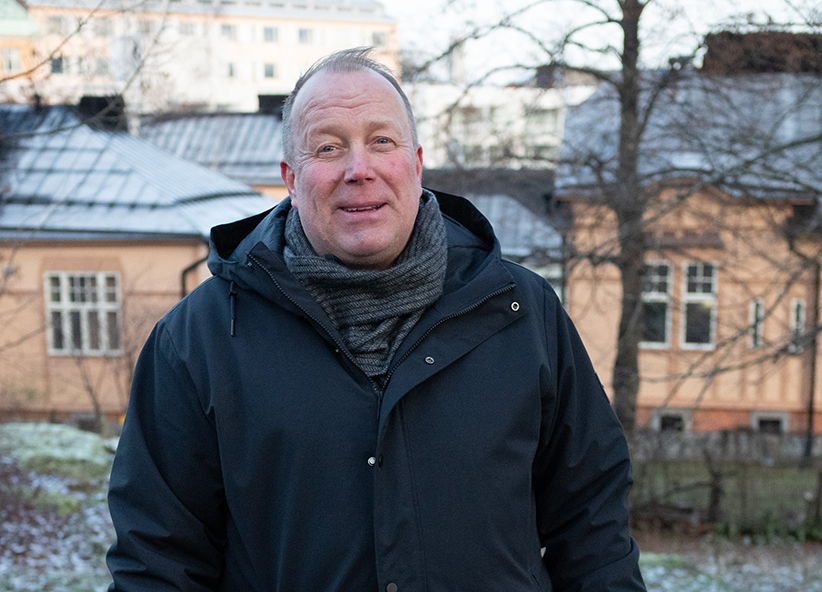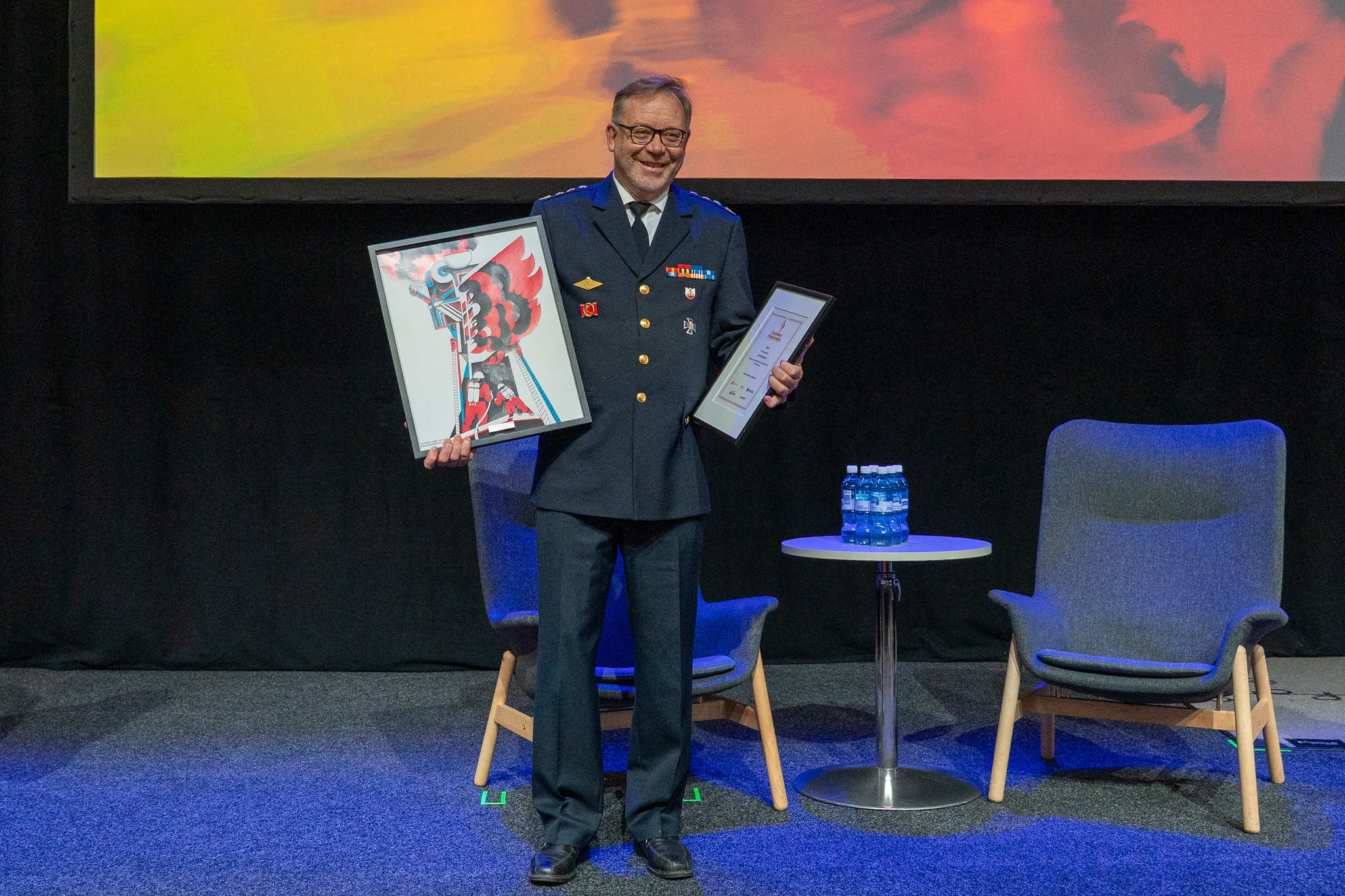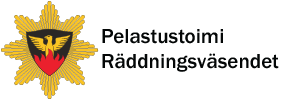
New Rescue Chief Marko Rostedt is a rescue services veteran

Marko Rostedt started as the Rescue Chief of the Helsinki City Rescue Department on 1 July. He transferred to the position within the department, from the position of Unit Manager of the Operational Services Unit.
The career of Marko Rostedt, who started as Rescue Chief at the beginning of July, began in 1999 when he completed his training to become a rescuer. He describes his occupational history as a long-term project: his further training started from the position of a rescuer, advanced to courses for non-commissioned officers and officers, then to diving courses and to the position of an MIRG rescuer. In addition, Rostedt has completed the Finnish international rescue operations courses and training sessions.
“I have been and still am interested in self-improvement and there are many opportunities for specialisation in the rescue service sector,” says Rostedt.
Before coming to the Helsinki City Rescue Department, his career included different duties, and advanced from firefighter to head of rescue services. In terms of the rescue services sector, Rostedt has also worked at the Crisis Management Centre Finland and in the MIRG project of the Finnish Border Guard.
"Deputy Rescue Chief Toni Fohlin and I were involved in launching the current MIRG operation. We created operating models and training courses and developed operations and equipment.”
In addition to work in Finland, international duties in the rescue services sector are close to Rosted’s heart. The list of things he has experience is long, ranging from earthquake and flood areas to controlling the spread of the Ebola virus. In addition, he has been involved in level inspections related to rescue missions in ruins in different countries.
"In Helsinki, the expertise in rescue missions in ruins is at a good level," Rostedt says.
He continues his praise: “Finding people this competent and proud of their profession is not easy. The firefighters' competence in emergency medical care is superb, and in other tasks as well. Healthy professional pride is a great trait.”
Present in daily life
In his role as the Rescue Chief, Rostedt wants to be involved in the daily life of the Rescue Department as much as possible.
"I may not have been able to be present enough, not as much as I would have liked. That is something I strive towards: being more visible at the stations. I try to create the best possible conditions for people to work in.”
As an example, he mentions the fluency of human resource matters, as well as fair and transparent decision-making.
"I want to take things forward, to support the work of supervisors and others. I want to keep paving the way for our work.”
For Rostedt, change is not a necessary evil, but an opportunity.
“I don’t like hearing that something ‘has always been done like this’. However, change must not be implemented just for its own sake; there must be a reason for it. People working in the field are usually the voice that says what should be changed,” he says.
Rostedt is starting in the position of Rescue Chief in a familiar work environment. Some things are still new.
“There are new things to learn, but working is easy when you have a good group of people around you. There is always help and assistance: you don't have to struggle with things alone.”
Although Rostedt describes himself as “hailing from the city of Turku” he has settled well into the ranks of the Rescue Department in Helsinki.
“The people here immediately accepted me, for which I’m very grateful.”

